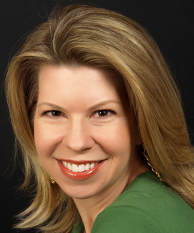A week before the election, the Initiative on Catholic Social Thought and Public Life at Georgetown brought together respected leaders to assess the moral responsibilities and public obligations of candidates, campaigns, institutions, and citizens to protect democracy and to promote the common good at a time of intense polarization.
The United States is deeply divided, and some are challenging the fairness of the presidential election and will not pledge to accept the outcome. In this timely dialogue, a former chief of staff in a Democratic White House, a special assistant to a Republican president, a Washington Post opinion writer, the former chairperson of the Republican National Committee, and a leader in efforts to promote democracy explored what should be done and not done to inspire confidence and help unite the nation in the aftermath of a hard-fought election.
These experienced and respected leaders addressed the following questions:
- What are the moral and public responsibilities of a candidate who wins or loses a national election?
- What are the moral and public obligations of candidates and campaigns in the last week, on election night, and after the election?
- How do you assess our current political context? What is undermining and what is encouraging confidence in the electoral process? What is enhancing and threatening an orderly continuation or transfer of power? What is working against that?
- What are examples of leadership in this area and what can we learn from them?
- How can political leaders accept victory or defeat and keep faith with their principles and supporters?
- What about the rest of us, citizens and voters, religious leaders and journalists, universities, and other institutions? What are our moral and public obligations during and after a hard-fought and bitter election?
John Carr, the director of the Initiative, moderated the discussion.
Resources
View a list of articles, podcasts, websites, and other resources for this dialogue.
This Public Dialogue was part of the Initiative’s Faith and the Faithful series. It was co-sponsored by Georgetown’s Institute of Politics and Public Service and was supported by the Democracy Fund.





